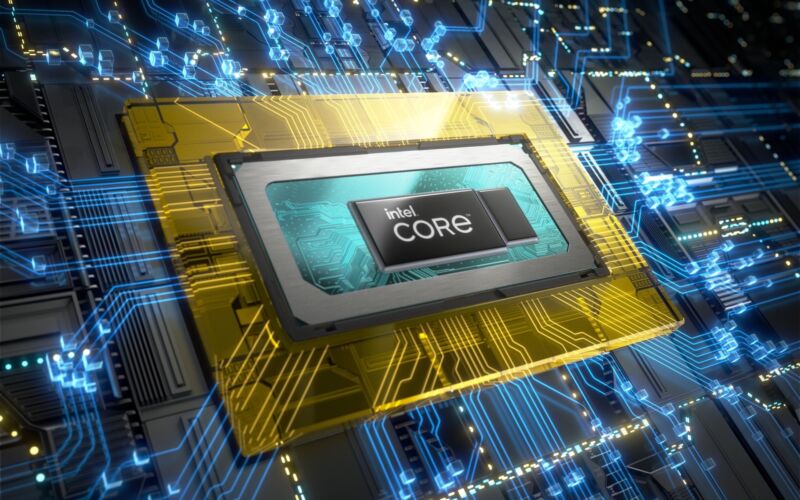
Enlarge / Intel's 12th-generation Core CPUs use different types of CPU cores for different tasks. That hybrid architecture continues to cause problems for some software. (credit: Intel)
Earlier this week, some people waiting to take the bar exam received a message from ExamSoft, the company that makes the Examplify software that many states use to administer the exam: PCs with Intel's latest 12th-generation Core processors are "not currently supported" because they were "triggering Examplify's automatic virtual machine check." The company's suggested solution was that people find another device to take the test with, a frustrating and unhelpful "workaround" for anyone with a brand-new computer.
As pointed out by The Verge, Examsoft's system requirements page for its software provides no additional detail, simply reiterating that 12th-gen CPUs aren't currently supported and that you aren't allowed to run the Examplify software within a virtual machine. But it's not the first time a problem like this has surfaced, and the culprit is almost certainly the hybrid CPU architecture that Intel is using in most 12th-gen chips.
In previous generations, all of the cores in a given Intel CPU have been identical to one another: same design, same performance, same feature set. Clock speed and power usage would ramp up and down based on what the computer was doing at any given time, but the cores themselves were all the same and could be treated that way by the operating system. In 12th-gen chips, CPUs come with a mix of completely different processor cores: large, fast performance cores (or P-cores) handle the heavy lifting, while smaller, low-power efficiency cores (or E-cores) handle lighter tasks. But because operating systems and most apps are used to assuming that all CPU cores in a given system are the same, software has needed to be modified to tell the difference between the two.
Read 4 remaining paragraphs | Comments
https://ift.tt/Gu6723e
Comments
Post a Comment